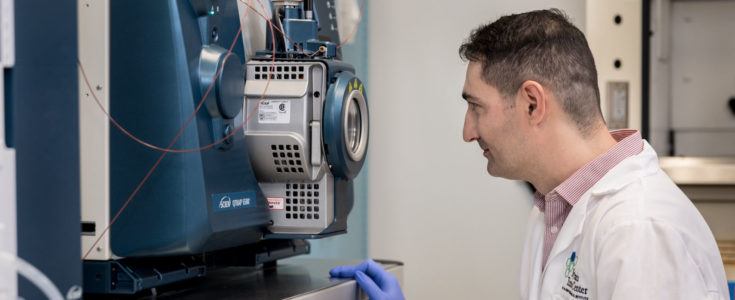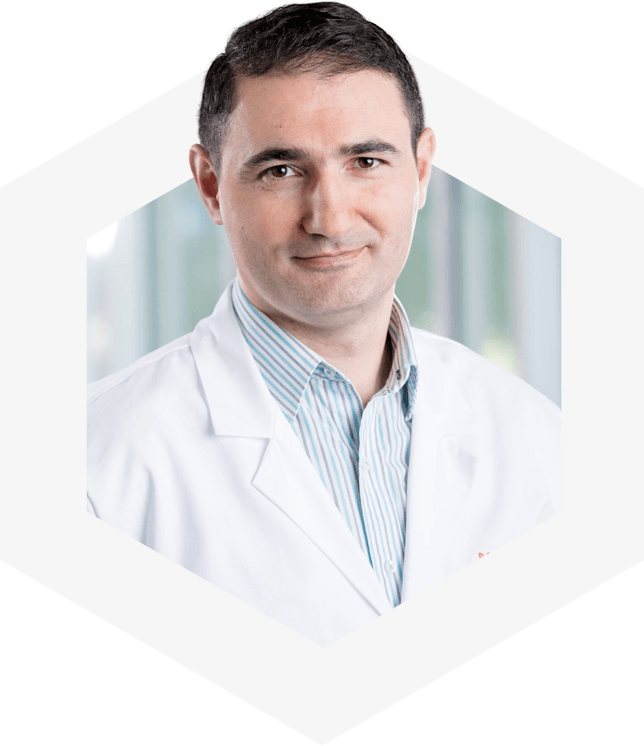
Ivy Blog
Staff Spotlight: Artak Tovmasyan, PharmD, PhD
- January 14, 2021
- Ivy Center
- Posted in #IvyTeam


Job Title: Pharmacokinetics Core Leader
Hometown: Yerevan, Armenia
What motivated you to get into the medical field, specifically neuroscience research?
Poor cancer death statistics in my home country, the lack of efficacious anticancer drugs, and resulted hardships faced by most families there urged me to select the Pharmaceutical Chemistry field as a platform to be successfully engaged in anticancer drug development. My research during graduate studies was mostly devoted to designing effective anticancer agents. It was during my postdoctoral years at Duke University, that I first started investigating drugs against brain cancer, a very challenging area for drug development. Inspired by the very promising pharmacological effects of the drugs we had been working previously, I embarked on a journey of drug development for brain tumor patients. In the following few years we have designed several compounds that could penetrate the brain and be safe enough to aid patients with brain tumors. Currently, one of the lead candidates that we have developed is involved in four Phase II clinical trials with cancer patients, including those with glioblastoma.
What makes working at the Ivy Center different than other research centers?
I direct Pharmacokinetic (PK) research within the Ivy Brain Tumor Center. The Ivy Center hosts the largest number of Phase 0 Clinical Trials for brain tumor patients in the world and the results obtained in the PK lab, along with the data received from Pharmacodynamics (PD) Lab, enable physicians to directly implement the most efficient regimens for brain tumor treatment. Such an approach is distinctly different from conventional clinical trials conducted in other centers nationwide. It is based on personalized precision medicine, where each patient has the unique prospect of receiving individualized therapeutic dose and schedule based on the results received from PK/PD Labs. Most importantly, the individual results become available within 10 days of trial involvement saving patient’s valuable time and resources.
Have you ever been personally impacted by brain cancer?
I was born in Armenia, a small country which, unfortunately, has one of the highest cancer death rates in the world (according to the World Life Expectancy research center). There is hardly a single family in Armenia who has not been affected by some type of cancer. My grandpa died of head and neck cancer and my mom is a cancer survivor. My head teacher at high school was diagnosed with glioblastoma. At that time, I did not know how aggressive and deadly the brain cancer was. It came as a shock to me and to others when she died several months after diagnosis. Years later, I learnt challenges and difficulties researchers were facing in cancer drug development and became determined to contribute to its advancement throughout my professional career.
What is it like to know that you’re playing an integral role in identifying new therapies that will contribute to a cure for brain cancer?
First, it is an extreme responsibility to be a part of the group that is determined to find new therapies for brain cancer patients. Second, it is an ultimate joy to realize that my research contributes to drug development in the brain cancer field.
What is your favorite part about your job?
The favorite part of my job is realizing that my research results contribute to enhancing our understanding of disease treatment. Any small progress in the field of brain cancer treatment can largely impact a patient’s life expectancy and quality of life.
What keeps you motivated when dealing with such a complex disease?
The Ivy Brain Tumor Center is comprised of highly knowledgeable and experienced individuals and exercises unique drug development mechanisms that warrant our strong determination and motivation in tackling a disease of such complexity. The results we obtain on a daily basis bring us closer and closer to our understanding of the pathways we can employ to reach the ultimate goal, namely treating brain cancers.
